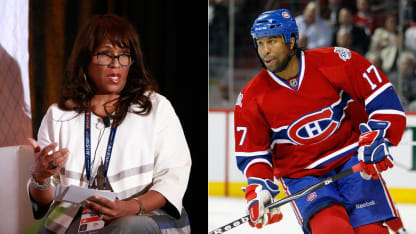"As far as a player's perspective, it's up to us as a collective to make sure it's a high priority for each one of us," said Brown, who scored 22 points (nine goals, 13 assists) in 62 games for Iowa before the rest of the AHL season was canceled due to concerns surrounding the coronavirus. "I know we spend a lot of time perfecting our craft, working out skating, but we do have a lot of down time, so there is time for us to continue to educate ourselves and to continue to speak out on these issues. It shouldn't take a movement like Black Lives Matter or to watch somebody die on video to have these conversations."

